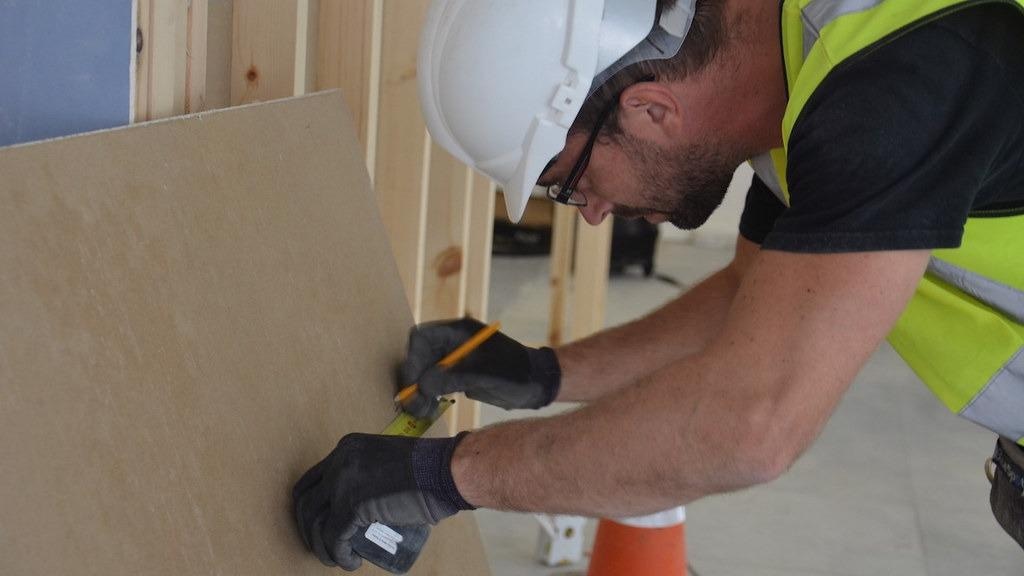Researchers at the University of Bath have collaborated with a start-up company Adaptavate, which manufactures sustainable building materials.
 Adaptavate is developing biodegradable plasterboard that is made using crop waste instead of gypsum. Image Credit: Adaptavate.
Adaptavate is developing biodegradable plasterboard that is made using crop waste instead of gypsum. Image Credit: Adaptavate.
The company’s biodegradable plasterboard, known as Breathaboard, is made of compostable crop waste rather than gypsum. This material is lighter and possesses better thermal and acoustic insulation than conventional plasterboards.
Microbiologists from the University of Bath’s Department of Biology & Biochemistry, and concrete experts from the Department of Architecture and Civil Engineering have received financial support from the National Biofilms Innovation Centre (NBIC) for a six-month pilot project with the objective of optimizing the characteristics of the prototype plasterboard with their bacteria-based construction technology (BBCT).
The plasterboard can be further scaled up and developed on attaining the desired result.
Dr. Susanne Gebhard, Senior Lecturer in the Department of Biology and Biochemistry and the Milner Centre for Evolution, is heading the project together with Professor Kevin Paine from the Department of Architecture and Civil Engineering, at the University of Bath.
Biofilms are formed when bacteria stick together to coat a surface, as opposed to growing neat dot-shaped clumps on a petri dish. This is a really exciting project that will see whether we can exploit the natural biofilm-forming abilities of bacteria to function as a kind of glue that will help improve the properties of biodegradable construction materials.
Dr. Susanne Gebhard, Senior Lecturer, Department of Biology and Biochemistry, University of Bath
“Gypsum is the third most used construction material and accounts for 3% of UK carbon emissions. It’s either mined or produced from waste from coal power stations and is becoming increasingly expensive to produce. As it’s calcium sulphate based, it also needs to be disposed of carefully so it doesn’t harm the environment,” stated Jeff Ive, Technical Director at Adaptavate.
Our Breathaboard is a low carbon sustainable alternative to gypsum based plasterboard and could make a real difference to the carbon emissions of the construction industry. We’re delighted to be working with the University of Bath to further develop this product.
Jeff Ive, Technical Director, Adaptavate